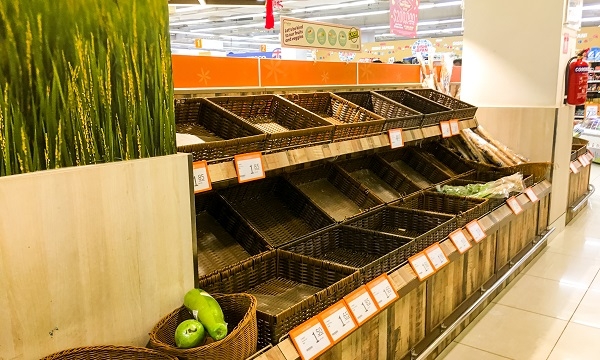
Singapore's streets empty out as extended circuit breaker imposes tighter rules
The Lion City continues to prioritise safety, but its business landscape gets worse each day.
On 21 April, PM Lee Hsien Loong announced that Singapore’s circuit breaker period is extended until 1 June. With this, comes with tighter rules on the services sector, as well as on foreign workers.
The government declared snacking businesses, such as hawker centres, bubble tea, beverages, packaged snacks, confectioneries shops, to shut down. Only food businesses that offer meals are allowed to operate.
Other services such as hairdresser and barber services are required to close down. Optical shops can operate by appointment only, and can no longer accept walk-in customers. Pet supplies stores and retail laundry services must close their physical stores, but are permitted to provide online sales and delivery.
“This will mean that some businesses which are currently permitted to operate at their work premises will be required to suspend their on-site activities. The affected businesses will be notified by the Ministry of Trade and Industry and will have 24 hours upon notification to wind down their business operations completely,” said Siew Khee Lim, analyst at CGS-SIMB.
On the workers’ side, the Minister of Manpower Josephine Teo stated that foreign workers are no longer allowed to go to work, whilst the essential workers amongst them will be housed separately.
The multi-ministry taskforce has rolled out a new set of support measures worth $3.8b. The enhanced Jobs Support Scheme (JSS), which covers 75% of employees' wages up to a salary ceiling of $4,600, has been extended to May. The new relief will now include some of the board of directors and shareholders.
In addition, Foreign Worker Levy for the months of April and May will now be waived. There will be an extra $750 rebate from levies paid in 2020 for Work Permit/S Pass holders, bringing the total rebate to $1,500 so far.
Despite the enhanced support, Lim noted that these will not be enough to lessen the impact on businesses. “The cost relief will help companies with a large headcount (yards and construction sectors) but the impact will be offset by the slowdown in activities in H1 2020, especially with the restrictions on the movement of foreign workers,” she said.
With all of these going on, Lim is expecting that it will have a minimal impact on hospitality and retail REITs as they have undertaken a series of adjustments even before the circuit-breaker period began. However, the extension could speed up the displacement of retailers and affect mall occupancy in the longer run.
“Generally, landlords are already giving out rental rebates till June. This could cover the extended circuit breaker period. However, we do not rule out landlords’ voluntarily extending an additional month of rebates to some tenants. We have assumed three months of rental rebates (including 100% property tax rebate) to 90% of retail tenants in 2020F,” Lim explained.
Hospitality REITs, on the other hand, will only be receiving minimum rents in Singapore.
Meanwhile, the private residential market will remain quiet in the absence of new launches. Sales for ongoing launches may likely be adversely impacted during this period.
“Accordingly, we see downside risk to our current 2020 volume sales projection of 8,000-9,000 units as cautious sentiment persists. In addition, with most construction sites remaining closed during this period, we expect minimal development activities to take place. The slower pace of progressive residential recognition, together with a softer retail and office rental market, will likely drag down developers’ earnings,” Lim added.
Within the transportation sector, the government’s goal of cutting the proportion of workers still commuting to work from 20% to 15% is expected to hit ComfortDelGro further.
Lim expects ComfortDelgro to extend its full taxi rental waiver until 1 June, with a full rental waiver costing an additional $19m in lost revenue and push its Singapore taxi operations further into the red.
“[B]ut we believe it is a crucial move for CD to retain its taxi fleet through the COVID-19 crisis. We also expect public transport ridership to remain low in May with the further tightening on essential services. We believe CD’s rail segment will be hit harder than its bus segment,” she added.
Other sectors that Lim noted to have a worse impact amidst the circuit-breaker extension are construction, consumer staples and capital goods/yards.
Overall, CGS-SIMB estimates that Singapore’s GDP will fall 6.8% by end-2020, factoring in the reduced output from the government’s latest announcements.
“Though we expect pent-up demand as well as policy support from the cumulative stimulus package of $64b (or 13% of GDP) to stabilise demand once the circuit breaker is lifted. Each additional month of circuit breaker extension beyond 1 June reduces our revised baseline GDP growth forecast by a further 2% pts,” Lim said.
























 Advertise
Advertise






